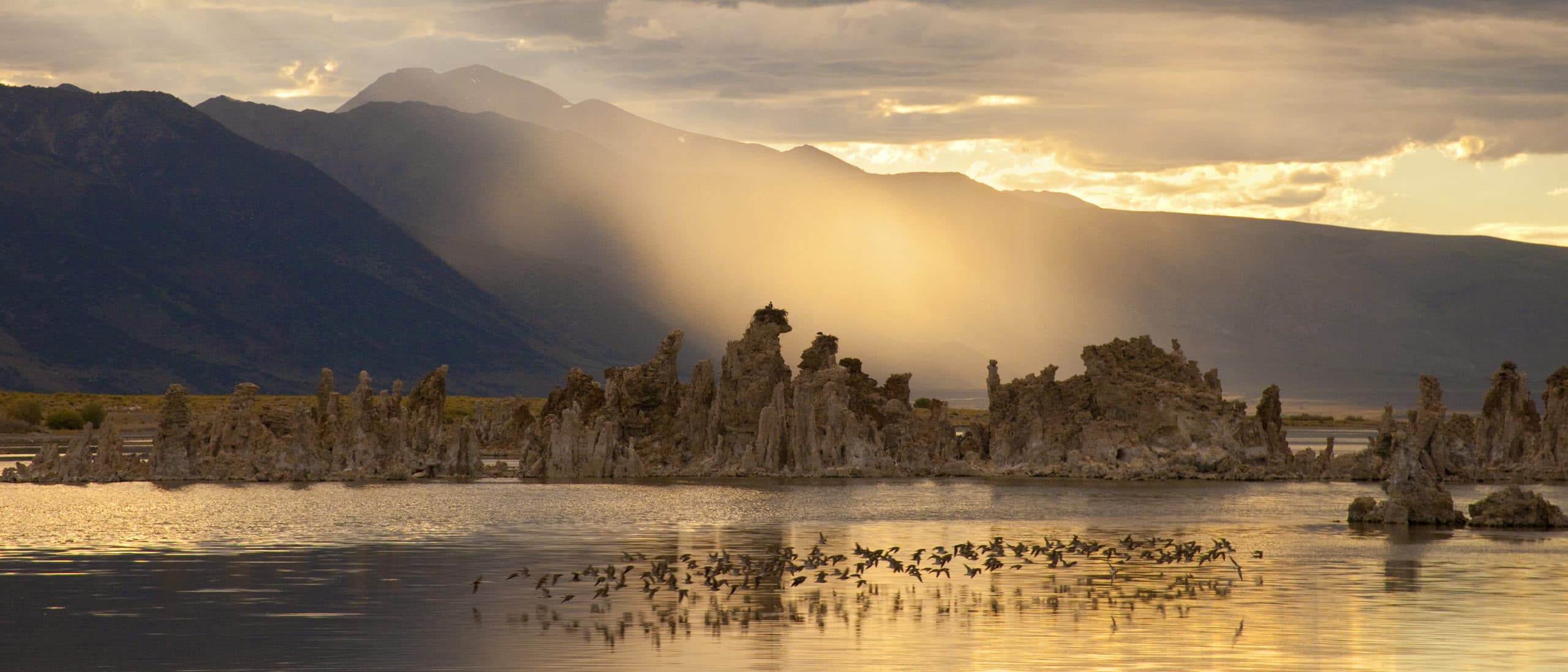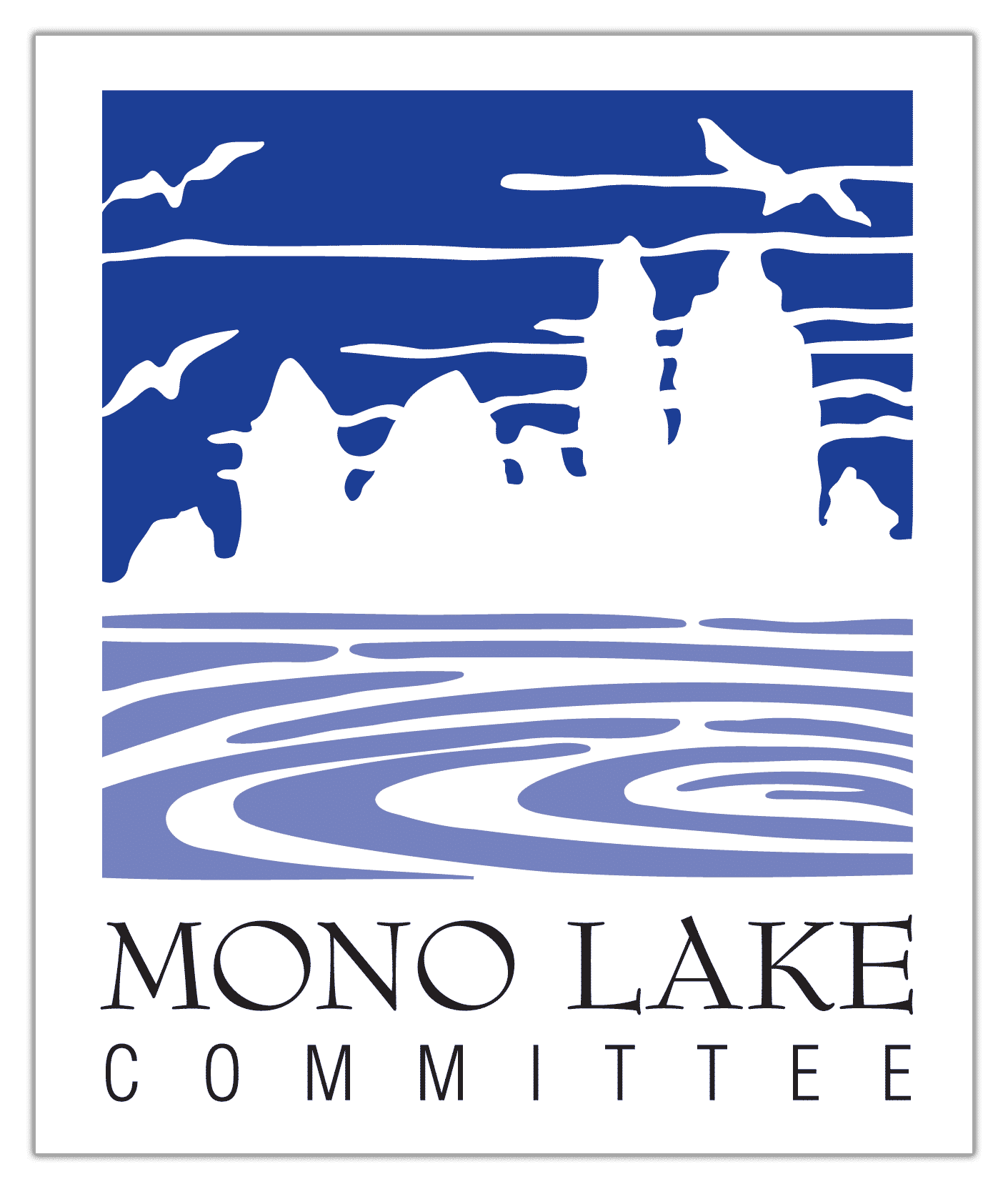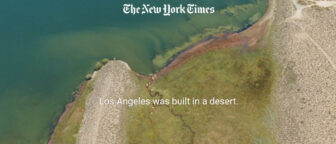
When the California Supreme Court ruled in 1983 that the Los Angeles Department of Water & Power’s water diversions from the Mono Basin had to be reconsidered to protect Mono Lake, it did so based on the Public Trust doctrine.
The court wrote that the Public Trust “is an affirmation of the duty of the state to protect the people’s common heritage of streams, lakes, marshlands and tidelands. The human and environmental uses of Mono Lake—uses protected by the Public Trust doctrine—deserve to be taken into account. Such uses should not be destroyed because the state mistakenly thought itself powerless to protect them.”
The Public Trust doctrine has a long and fascinating history on its way to the precedent-setting Mono Lake case and continues to be applied to environmental law today.
Emperor Justininan and the Magna Carta
The Public Trust doctrine was first established in the laws of ancient Rome, where it protected the public’s right to access navigable bodies of water and prohibited the state from granting exclusive rights to water resources to any single individual or entity.
England’s legal system inherited the Public Trust doctrine, where it appeared in 1215 in the Magna Carta, which said that while the king was understood to own bodies of water, he had an obligation to protect them for public use.
United States application
American law also says that navigable bodies of water and the beds of those navigable waters are especially important to the public, historically for navigation, commerce, and fishing. For example, land exposed between high tide and low tide must be open to everyone.
When each American state was established it was granted the title to its navigable waters, plus the beds of those waters. In California, the Public Trust doctrine was applied to tidelands disputes as early as the 1850s and referenced in several cases during the twentieth century.
Legal scholars analyze the doctrine
In 1970, a professor at the University of Michigan Law School named Joseph Sax published an article that applied the Public Trust doctrine to natural resource management. He translated the doctrine into a modern form, envisioning it as a check on regulatory agencies.
Another legal scholar, Harrison C. Dunning, had been advocating for water law reform since the 1970s. In 1981 he organized a conference at UC Davis on the implications of the Public Trust doctrine, during which participants considered what kinds of public uses were protected by the doctrine and to what degree it could challenge established water rights.
When it came time for the California Supreme Court to rule on the Mono Lake case in 1983, Professor Sax’s article and Professor Dunning’s conference papers were hugely influential.
Since the Mono Lake case
After precedent was established by the Mono Lake case, Public Trust values have been considered more broadly in protecting the environment.
The California State Water Resources Control Board is including Public Trust values in the difficult process of establishing water flow standards in the Sacramento-San Joaquin Delta. Courts have been asked to decide whether Public Trust values apply to fracking and wildlife conservation.
In 2015, a group of young people filed a lawsuit against the United States government, arguing that because of its actions that contribute to climate change it has failed to protect their Public Trust resources. In early 2020 the youth plaintiffs were dealt a blow in federal appeals court but have not given up.
Mono Lake supported a revival of the Public Trust doctrine, reminding us of a powerful force for protecting our lands and waters. As the Mono Lake case demonstrated, it is possible to call upon the government to protect values inherent in the natural places that belong to everyone.
More about Professors Joseph Sax and Hap Dunning
The Mono Lake Committee recognized Professors Sax and Dunning with our Defender of the Trust award. Professor Sax passed away in 2014; see a tribute to him.
related resources: Mono Lake @ 20 symposium
Related Posts
Top photo by Marie Read.



